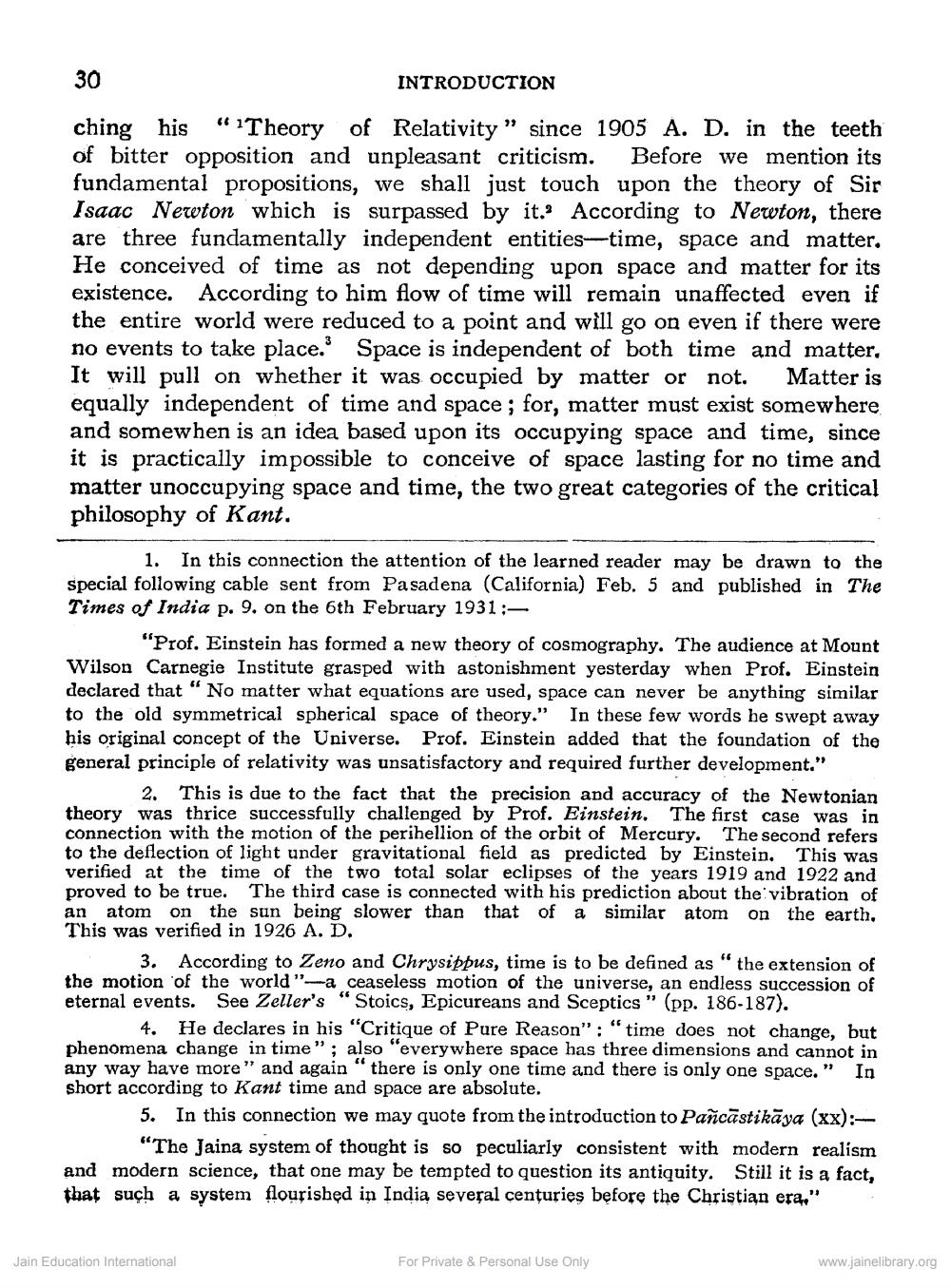________________
30
INTRODUCTION
ching his " Theory of Relativity” since 1905 A. D. in the teeth of bitter opposition and unpleasant criticism. Before we mention its fundamental propositions, we shall just touch upon the theory of Sir Isaac Newton which is surpassed by it. According to Newton, there are three fundamentally independent entities-time, space and matter, He conceived of time as not depending upon space and matter for its existence. According to him flow of time will remain unaffected even if the entire world were reduced to a point and will go on even if there were no events to take place. Space is independent of both time and matter, It will pull on whether it was occupied by matter or not. Matter is equally independent of time and space; for, matter must exist somewhere and somewhen is an idea based upon its occupying space and time, since it is practically impossible to conceive of space lasting for no time and matter unoccupying space and time, the two great categories of the critical philosophy of Kant.
1. In this connection the attention of the learned reader may be drawn to the special following cable sent from Pasadena (California) Feb. 5 and published in The Times of India p. 9. on the 6th February 1931:
"Prof. Einstein has formed a new theory of cosmography. The audience at Mount Wilson Carnegie Institute grasped with astonishment yesterday when Prof. Einstein declared that "No matter what equations are used, space can never be anything similar to the old symmetrical spherical space of theory." In these few words he swept away his original concept of the Universe. Prof. Einstein added that the foundation of the general principle of relativity was unsatisfactory and required further development."
2. This is due to the fact that the precision and accuracy of the Newtonian theory was thrice successfully challenged by Prof. Einstein. The first case was in connection with the motion of the perihellion of the orbit of Mercury. The second refers to the deflection of light under gravitational field as predicted by Einstein. This was verified at the time of the two total solar eclipses of the years 1919 and 1922 and proved to be true. The third case is connected with his prediction about the vibration of an atom on the sun being slower than that of a similar atom on the earth, This was verified in 1926 A. D.
3. According to Zeno and Chrysippus, time is to be defined as "the extension of the motion of the world"-a ceaseless motion of the universe, an endless succession of eternal events. See Zeller's "Stoics, Epicureans and Sceptics" (pp. 186-187).
4. He declares in his "Critique of Pure Reason": "time does not change, but phenomena change in time"; also "everywhere space has three dimensions and cannot in any way have more" and again "there is only one time and there is only one space." In short according to Kant time and space are absolute.
5. In this connection we may quote from the introduction to Pañcāstikāya (xx):
"The Jaina system of thought is so peculiarly consistent with modern realism and modern science, that one may be tempted to question its antiquity. Still it is a fact, that such a system flourished in India several centuries before the Christian era,"
Jain Education International
For Private & Personal Use Only
www.jainelibrary.org




